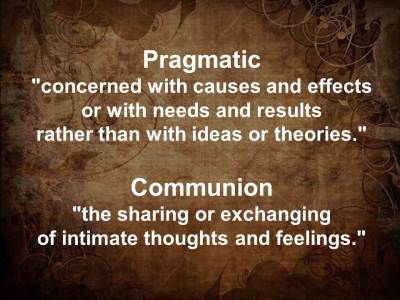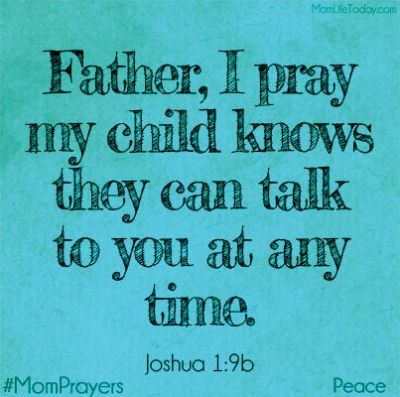 It was Sunday afternoon. I was in “my” room. The living room. Looking out the window that spans nearly an entire wall, hypnotically watching a baby squirrel chowing down on the suet in the birdfeeder. I call it “my” room because it’s lined with a 12 foot wide by 7 foot high wall of 12×12 cubby shelves filled with books about God. Theology. Spiritual Growth. Prayer. Suffering. blah. blah. blah.
It was Sunday afternoon. I was in “my” room. The living room. Looking out the window that spans nearly an entire wall, hypnotically watching a baby squirrel chowing down on the suet in the birdfeeder. I call it “my” room because it’s lined with a 12 foot wide by 7 foot high wall of 12×12 cubby shelves filled with books about God. Theology. Spiritual Growth. Prayer. Suffering. blah. blah. blah.
84 square feet. My own personal little library. That’s a lot of books. A lot of words. I’ve learned a lot from those books. With endless more still to learn.
My husband was chilling out in the adjacent room. Even though we’re visually separated by the wall of books, we never have to raise our voice to hear each other.
The clock ticks.
Me, softly: “I miss the old me.”
FirstHusband: “What do you mean?”
Me: “You don’t notice a difference?”
silence.
He knows what I’m talking about.
The clock ticks.
Me: “I miss optimism.”
silence. He’s not ignoring me. He’s waiting. He knows me. I’m not done talking. I’m not done thinking.
(I know, I know. I’m NEVER done thinking.)
The clock ticks.
Me: “I hate that the gate is so narrow.”
FirstHusband: “I know.”
A few years ago, when I experienced the deafening silence and pitch black darkness and seeming cavernous distance from all that I had come to recognize and understand and depend on as the presence of God, I couldn’t understand why He was allowing such intense pain. I wondered then if the separation was temporary or permanent. If it was temporary, I wondered if the other side would prove to be a pruning that led to a more fruitful bounce back to what I had come to know as “normal” or if this season was a “refined by fire” step leading to an altogether new and different relationship with God.
I’m still not sure.
I’m not sure I’m completely done with that season, so it very well may be that it’s premature to be contemplating the “lessons learned” of it all.
 One thing I understand better than I did before is when Paul wrote these words:
One thing I understand better than I did before is when Paul wrote these words:
“that I have great sorrow and
unceasing anguish in my heart.
For I could wish
that I myself were accursed
and cut off from Christ
for the sake of my brothers,
my kinsmen according to the flesh.”
Romans 9: 2-3 ESV
Paul is saying, “I genuinely grieve for those who don’t know Christ. I would give up eternity with Him, if it meant that they could know Him.”
And just to be clear, me saying I understand Paul better, does NOT mean I share his sentiments about sacrificing my relationship with God so that somebody else could know Him.
I know me. I’m much. much. too selfish for that.
The pain I experienced during my recent separation from Him here on earth is more than enough to tell me that eternal separation would be…
unbearable doesn’t begin to describe it.
But I do understand what Paul is saying.
And the raw truth of it is suppressing optimism. It’s sabotaging Hope.
Not that I don’t know Satan will be defeated in the end, because I know he will. It’s just that the evidence that the earth is Satan’s domain seems to be everywhere I look.
I can’t not see it.
Back in December of 2013, I wrote about asking God to “Break my heart for what breaks Yours.” Here’s an excerpt from that post:
“The next morning, I woke up…brokenhearted. Seriously. It’s the only word that fits. I was literally grieving over how many people HATE God. or even the idea of Him.
Immeasurable grace. Unconditional love the likes of which I will never fully comprehend.
and so often – much too often – the response is arrogant and caustic rejection. vehement acrimonious derision. revulsion. hate.
and then there’s indifference.
God, through the ultimate expression of love, sacrificed Himself on the cross so that ANYone can experience abundant life in Him.
and so many people respond with “meh.” So many people don’t respond at all.
I’m brokenhearted. Not just for people I know and love, but for people I’ve never met.
this is new. and not from me. On my own, I’m incapable of this kind of intuitive compassion.“
Some read those words and thought I was being arrogant. condescending. sanctimonious. I can’t stop them from thinking that. Haters gonna hate.
Some might read them and think I’m an emotionally driven drama queen. Those people obviously don’t know me very well.
The fact is, it’s much easier to live with the knowledge that so many people hate God when you only process the information intellectually. It’s their choice. And the choice has consequences: current and eternal separation from the God who loves them unconditionally. End of story.
But when you genuinely care about someone, and you know they’ve mistaken religion for a restored relationship with God through Jesus, you grieve for their loss.
condescending?
Again. I can’t stop people from thinking that.
I believe that God, through the ultimate expression of love, sacrificed Himself on the cross so that ANYone can be restored to uninhibited relationship with Him and experience abundant life through Christ, not only for eternity but also now – here on earth. And so. many. people say He doesn’t even exist. So. many people blame Him for Satan’s handiwork. They want Him to intervene and stop “bad” people from hurting “good” people, not thinking through the implications that would have in their own lives if God intervened and stopped them from ever doing anything rebellious.
My acute awareness of how many people live separated from God brings with it the broken heart I prayed for. Not just for people I know and love, but for people I’ve never met.
And I can’t not see it. I can’t not know it.
And so I find myself wrestling with the paradox of personally experiencing the joy of abundant life in Christ and grieving because so many people seem to hate God. And anyone who loves Him.
I wouldn’t change the seeing. or the knowing. It’s good to know.
And a little bit not…














 Me: “Yep. There’s lots of different ways to pray, but I think the way that brings me closest to God is practicing His presence. You remember what I told you about practicing the presence of God? How I first started doing it?”
Me: “Yep. There’s lots of different ways to pray, but I think the way that brings me closest to God is practicing His presence. You remember what I told you about practicing the presence of God? How I first started doing it?” Me: “Just reading the Bible isn’t enough. You won’t grow in your relationship with Christ if you don’t remember what you read. You have to engage in God’s Word. That takes effort. How can you remember the scripture from your morning devotion throughout your day ? And for days after that?”
Me: “Just reading the Bible isn’t enough. You won’t grow in your relationship with Christ if you don’t remember what you read. You have to engage in God’s Word. That takes effort. How can you remember the scripture from your morning devotion throughout your day ? And for days after that?”
